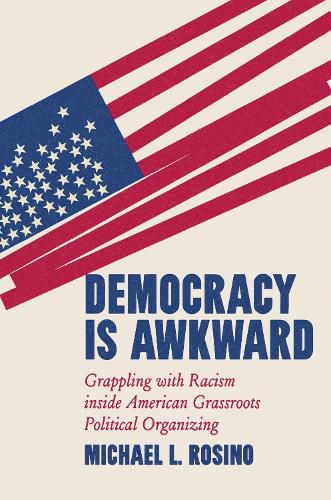Readings Newsletter
Become a Readings Member to make your shopping experience even easier.
Sign in or sign up for free!
You’re not far away from qualifying for FREE standard shipping within Australia
You’ve qualified for FREE standard shipping within Australia
The cart is loading…






In uncertain times, confronting pressing problems such as racial oppression and the environmental crisis requires everyday people to come together and wield political power for the greater good. Yet, as Michael Rosino shows, progressive political organizations in the United States have frequently failed to achieve social change. Why? Rosino posits that it is because of the unwillingness of white progressives at the grassroots level to share power with progressives of color.
Using rich ethnographic data, Rosino focuses on participants in a real grassroots progressive political party in the northeastern United States. While the organization's goals included racial equity and the inclusion of people of color, its membership and leadership remained disproportionately white, and the group had mixed success in prioritizing and carrying out its racial justice agenda. By highlighting the connections between racial inequality, grassroots democracy, and political participation, Rosino weaves in the voices and experiences of party members and offers insights for building more robust and empowering spaces of grassroots democratic engagement.
$9.00 standard shipping within Australia
FREE standard shipping within Australia for orders over $100.00
Express & International shipping calculated at checkout
In uncertain times, confronting pressing problems such as racial oppression and the environmental crisis requires everyday people to come together and wield political power for the greater good. Yet, as Michael Rosino shows, progressive political organizations in the United States have frequently failed to achieve social change. Why? Rosino posits that it is because of the unwillingness of white progressives at the grassroots level to share power with progressives of color.
Using rich ethnographic data, Rosino focuses on participants in a real grassroots progressive political party in the northeastern United States. While the organization's goals included racial equity and the inclusion of people of color, its membership and leadership remained disproportionately white, and the group had mixed success in prioritizing and carrying out its racial justice agenda. By highlighting the connections between racial inequality, grassroots democracy, and political participation, Rosino weaves in the voices and experiences of party members and offers insights for building more robust and empowering spaces of grassroots democratic engagement.